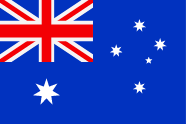We’re working really hard to keep you in the loop as much as possible in the fast-changing circumstances.
We want to help you wherever we can during these challenging times. If you’re struggling financially as a result of Coronavirus and are worried about the payments for your policy, or if you have a policy that you don’t think you’ll need now, such as an annual travel policy, please get in touch. We’ll discuss your options with you and work out how we can provide support.
Our call centres are very busy at the moment and we are trying to answer your questions as quickly as we can. If your query is non-urgent and you are not due to travel in the next two weeks, please don’t contact us yet, so we can prioritise people in need of urgent help or who are due to travel sooner.
In the meantime, we are regularly monitoring the situation and updating our Coronavirus single trip/backpacker and annual multi-trip FAQ pages. To find out more about the impact the outbreak is having on our travel insurance policies, please check the relevant FAQ before calling or emailing us.
We’d also like to highlight that travel insurance only protects against unforeseen circumstances getting in the way of your travel plans, so any policy you buy now will have very limited insurance coverage. While the Department of Foreign Affairs (DFA) has advised against all but essential travel indefinitely, you will not be covered under our travel insurance policies if you decide to go ahead with your trip.


Australia is a unique country that’s home to glistening monuments, vast plains and blue waters that are packed with exotic marine life. During your trip, you can see rock artwork that’s over 20,000 years old in the Kakadu National Park, learn how to scuba dive at the Great Barrier Reef or take in Sydney’s famous skyline.
Australia’s Aboriginal culture is something most visitors love to explore. The Aboriginal people come from over 500 different first nations, and they’re the inheritors of the longest continuous culture on earth. You can head into the outback to learn about Aboriginal culture, but many people choose to take a walking tour, admire the local art or try a bush-tucker experience.
Australia’s warm climate makes it the perfect place to enjoy a beach break too, and luckily, you’re never far from one. Sydney has Bondi Beach and Manly Beach within 25 minutes of the city centre, and the two are regularly voted as being among the best in the world.
If you’d rather experience life away from the shoreline, then the Great Barrier Reef is the place to be. It stretches for over 2,000km and contains beautiful coral networks, gliding rays and tropical fish of every colour and size. You can either hop on a glass-bottomed boat, or snorkel and come face-to-face with the marine life below.
There’s just as much wildlife to see and discover on dry land, too. Many tourists love Australia’s wildlife parks, like Kangaroo Island and the Daintree Rainforest. You’ll never forget watching kangaroos bound across grassy plains, or spotting koala bears in the trees.
Culturally, Australia is very similar to Ireland. English is the de facto national language, so you’ll have no problem communicating with the locals. The Australian Dollar is the national currency, and you can either exchange your money before you travel or exchange it while you’re in Australia.
Whatever you plan on doing in Australia, it's important that you get travel insurance to protect yourself against any unforeseen eventualities.
Below is some more information about our products, for which Terms and Conditions apply. Please visit the policy information hub for full details.
What does our travel insurance for Australia cover?
- *Not available with Bronze cover
- Terms and Conditions apply.
Frequently Asked Questions
What travel insurance do I need for Australia?
To make sure you get a travel insurance policy that’s right for you, you’ll need to think about the type of trip you’re taking and how frequently you travel. Additional factors – like your age, or the activities you plan to do can also affect the cover options that are available to you. Your eligibility for cover will be affected if any of the people travelling have any pre-existing medical conditions.
If you’re only going to Australia once this year, Single Trip travel insurance will provide you with the cover you need. But if you’re visiting Australia as part of a gap year or a career break, and are aged 50or under, then you may find that Backpacker insurance is a better fit. If you plan to go on multiple holidays in a calendar year and are 64 years old or under, then our Annual travel insurance will be the best option for you.
What visa do I need for Australia?
As an Irish citizen, you will need a visa to enter Australia; you’ll have to get this before you travel.
An Electronic Travel Authorisation (ETA) or an eVisitor visa will allow you to travel:
You can also study or train for up to 3 months in Australia with either of these visa types, though a student visa may be more appropriate if you’re visiting the country for the sole purpose of studying.
If you plan to work in Australia, there are several working visas to choose from. The type of visa you need will depend on the length of your stay, and the work you intend to do whilst you’re away.
For the latest information, please visit the Department of Foreign Affairs website. The Department of Home Affairs can also provide further assistance and, if you’re unsure which visa is best suited to your trip, you can use their Visa Finder tool.
While in Australia, you must always respect the terms of your visa, as immigration laws are strictly enforced. It is an offence to overstay your visa, and sanctions include up to a three-year ban on entering the country.
Does Ireland's Reciprocal Healthcare Agreement with Australia provide medical cover
There is a reciprocal health agreement in place between the governments of Ireland and Australia, known as the Medicare scheme. Under the agreement, while you’re on holiday in Australia, you can be given free emergency care in Australian public hospitals.
However, the Medicare scheme only covers people who are legally in Australia on certain visa classes (student visas are not included, for example). Plus, the agreement is limited to emergency situations. It does not cover ambulance costs, prescription cover, outpatient costs for follow-ups or repatriation to Ireland, and it won’t cover you for pre-existing medical conditions. As a result, it is not a substitute for travel insurance.
If you intend to make a claim under the Medicare scheme, then you must make your claim before you leave Australia. If you make use of these arrangements, you will not have to pay an excess on the medical section of your travel insurance for Australia.
Do I need additional cover for adventure sports?
Whether you fancy snorkelling in the Great Barrier Reef, scaling the Sydney Harbour Bridge or surfing in Byron Bay, you’ll be pleased to know that our travel insurance policies include a number of sports and leisure activities as standard.
For a full list of the activities you’re covered for during your trip, please consult your policy documents. We may be able to cover you for other activities that are not listed, though you may fiind there are some activities we are unable to cover. Please contact us on 00353 1 619 3681 to learn more.
Are there any safety risks associated with travelling to Australia?
Although Australia is considered to be a safe country to visit, there are a few things that you should be aware of before you travel.
Firstly, Australia’s climate can be extreme and there can be huge variations in weather across the country; a flood in one area can be accompanied by drought in another. So, if you’re travelling to different regions, you should bring clothing that’s suitable for all weathers and check forecasts regularly.
And it’s no secret that, during the summer, Australia can get very hot. You’ll need to avoid staying out in the sun for extended periods, and you should always wear sun protection if you’re visiting at this time. During the hotter months, Australia is also prone to bush fires. If there is a fire in your area, keep tuned into the local radio for updates, or download the ‘Fires Near Me Australia’ app.
In addition, if you’re visiting Queensland, the Northern Territory and Western Australia between November and April, there is a risk of tropical cyclones. Similarly, in this area you may be exposed to mosquito-borne diseases such as dengue fever and Ross River fever. You should receive any recommended immunisations before you travel, and use insect repellents and sleeping nets while you’re away.
Popular products from Allianz

.png)



.png)

